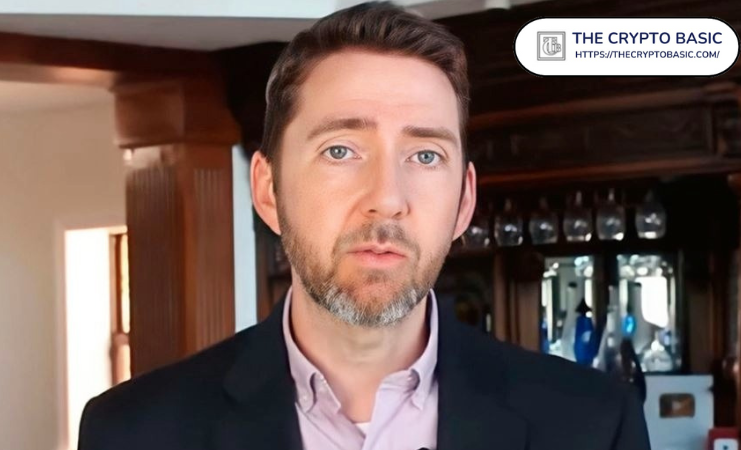The attorney highlights another reason why summary judgment should favor Ripple.
Attorney Jeremy Hogan, a pro-XRP lawyer and partner of Hogan & Hogan, has highlighted the second reason why Ripple did not sell the sixth-largest cryptocurrency as a security.
Hogan’s Analysis
In a Twitter thread today, attorney Hogan noted that Judge Analisa Torres has already given a clue on how she might find that Ripple did not sell XRP as a security.
The #2 reason Ripple did not sell XRP as a "security." (small thread)
The recent opinion from Judge Torres provides a clue as to how she might (rightly) find that XRP was not sold as a security.
First, look at the version of the Howey test she cites: pic.twitter.com/QzVwRekxve
— Jeremy Hogan (@attorneyjeremy1) April 14, 2023
According to a document shared by Hogan, Judge Torres demystified the Howey test into three prongs: “(1) an investment of money, (2) in a common enterprise, and (3) with profits to come solely from the efforts of others.”
Following Judge Torres’ version of the Howey test, Hogan explained that the test’s third prong implies that XRP purchasers “must have sought profits SOLELY from the efforts of others.”
The pro-XRP attorney finds the third prong of the Howey test interesting despite some court rulings that removed the “SOLELY” requirement.
SEC Failure to Prove the Third Prong of Howey
Hogan noted that the SEC’s effort to prove that XRP investors relied on Ripple’s efforts to make gains was truncated. Notably, the Judge struck out the testimony of the SEC’s expert hired to prove this point.
Hogan remarked that after the dismissal of SEC’s Expert 1 testimony, the agency’s third expert became the only witness to testify about the third prong of the Howey Test. Judge Torres denied Ripple’s motion to dismiss the SEC third expert’s testimony.
Notably, the SEC third expert opined that Ripple secretly manipulated XRP price. However, the expert did not indicate whether XRP purchasers knew about this price manipulation.
“In fact, the expert states that what Ripple was doing was being done in secret so people wouldn’t know. Without connecting Ripple’s actions to behavior, the testimony fails as proof,” said Hogan.
The outspoken legal expert does not believe the expert’s report is enough to justify the third prong of the Howey test.
Based on this, he said the regulator is now left with only the so-called “cacophony” statements made by Ripple as evidence to prove the third prong of Howey. In the SEC’s summary judgment motion, the regulator cited instances where Ripple promoted XRP as an investment contract.
Some include the brochure sent out to potential investors in 2014, and tweets from Ripple’s Chairman Chris Larsen, highlighting how the company intends to keep 50% of XRP supply to build apps and promote Ripple. Furthermore, the regulator asserted that Ripple touted “XRP price increase as Ripplemania.”
Hogan believes these claims are not enough to prove the third prong.
Ripple’s Defense
Meanwhile, Ripple has provided evidence showing that XRP was publicly deemed a currency and an asset, and not a security as claimed by the SEC.
Despite SEC getting six XRP holders to say otherwise, thousands of XRP holders countered the statement in the amicus curiae brief filed by attorney John Deaton on behalf of the community, said Hogan.
He added that one of the SEC experts conceded that Ripple had no influence on XRP price movements since 2018 till date.
Hogan: Ripple Should Win
Based on his analysis, Hogan said the majority of the evidence in the lawsuit shows that XRP investors did not rely on Ripple’s efforts to make gains.
He concluded that no reasonable juror would go through the evidence and still conclude that the SEC was able to prove the third prong of the Howey test.
According to Hogan, the analysis is the second reason Ripple should win the lawsuit. The partner of Hogan & Hogan highlighted the first reason why Ripple should win earlier this week. He asserted that the SEC has failed to show the investment contract in the Ripple case.
Hogan’s legal analysis is part of efforts to provide research materials to the clerk assisting Judge Torres in drafting the summary judgment.
“Thanks for reading (especially you-awesome Law Clerk!),” he remarked.
DisClamier: This content is informational and should not be considered financial advice. The views expressed in this article may include the author's personal opinions and do not reflect The Crypto Basic opinion. Readers are encouraged to do thorough research before making any investment decisions. The Crypto Basic is not responsible for any financial losses.


